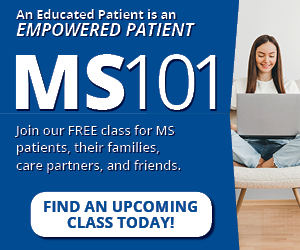
Everything we’ve collectively done over the past year — social distancing, washing hands, staying home, wearing masks — has contributed to the slowdown in infection rates and cases. But the biggest step forward was the introduction of vaccines and their widespread availability over the past few months. The vaccines are our most critical tool toward ending this pandemic.
All U.S. adults over the age of 12 are now eligible for COVID-19 vaccination. Individuals who are 12 and older are eligible to receive the Pfizer BioNTech vaccine, and individuals 18 and older are eligible to receive the Moderna and Johnson & Johnson vaccines.
As of mid-June, about 312 million vaccine doses had been given in the United States with an estimated 146 million individuals fully vaccinated. That means that more than half of adults in the U.S. have received at least one vaccine dose and about one third of adults are fully vaccinated.
In Colorado, nearly 6 million doses have been given and about 2.8 million people are fully vaccinated — a little less than half of the eligible population of people 12 years of age and older.
While we know that vaccine rates are up, transmission rates are down, and things on a whole are slowly getting back to normal, that’s not the case everywhere or for everyone. Many parts of the world don’t have reliable access to vaccines, and some places closer to home are still having trouble getting large portions of the population vaccinated. There’s also concern about new variants spreading more quickly, though as of now it seems existing vaccines are effective against those variants as well.
It’s important to monitor numbers and guidelines where you live, and to determine how safe you feel in fully getting back to normal.
And things get more complicated for people living with MS. We know that COVID-19 itself does not pose a greater risk to people with MS than it does to the general population, but we also know that certain other conditions common among MS patients can increase risk for bad outcomes if you contract COVID-19. In particular, people over the age of 70, people with heart disease, respiratory diseases, and increased levels of disability from their MS can develop more severe cases of COVID-19.
We also know that it’s still possible for vaccinated people to contract COVID-19, but extremely unlikely those cases would be severe. So, while things are looking better as we enter this new phase of the pandemic, there’s still very good reason to remain cautious and responsible.
“Even if you get vaccinated, you have to be careful,” says Dr. Enrique Alvarez of the Rocky Mountain MS Center at University of Colorado. “But if you don’t get vaccinated, you will not have any protection.”
Our medical team at the Rocky Mountain MS Center at University of Colorado is recommending that all individuals receive the COVID-19 vaccine, unless there is a specific reason to not get vaccinated, such as a known allergy to a component of the vaccine.
Assessing Your Risk
COVID vaccines are our most critical tool to ending the pandemic once and for all.
For those high-risk groups mentioned above, and for patients taking some disease modifying therapies (DMTs), including Ocrevus, Rituxan, and Kesimpta, that alter how their immune system works, the safest approach is to continue wearing masks, practicing social distancing, and performing regular handwashing even after receiving the COVID vaccine.
When you can get “back to normal” is a question everyone has to answer for themselves, but some simple steps to determine your own risk can be helpful.
For example, are you part of one of the higher-risk groups living with another condition in addition to your MS? Are there children under 12 in your household, or anyone else you know who can’t be vaccinated for one reason or another? Does your employment or other activity put you into contact with large groups of people? Any of these could be very good reasons to remain more cautious than the general public.
“If you’re vaccinated, in an environment that’s controlled and you know the people that you’re going to be in contact with, then I think that’s where I would feel really comfortable recommending that you lose the mask, you just relax and have a good time with friends,” says Alvarez.
“You’ll also need to weigh the potential risks of situations – your level of exposure, the importance of doing the activity, and information about the vaccines are all important factors in risk assessment.”
Even while keeping some precautions in place, there’s benefit to opening up to more normal activities.
“We’re seeing a lot of depression, a lot of anxiety, a lot of people who are deconditioned because they’re not getting any exercise,” says Alvarez. “So we really have to stress the ability for people to start living a little bit more normal lives as much as possible.”
Vaccine Side Effects and Safety
While it’s true that messenger RNA (mRNA) vaccines like the Pfizer and Moderna offerings are very new to widespread use, this type of vaccine delivery has been showing great promise for decades. The fact that these vaccines were brought to market so quickly has nothing to do with them being rushed through approval or trial processes.
On the contrary, because of the emergency nature of the pandemic, significant investments by governments and pharmaceutical companies were made to safely accelerate trials and testing. In the US, for example, Phase 1 and Phase 2 trials usually happen one after the other; in this case, they were able to overlap phases when tests were shown to be safe enough.
Companies also ramped up their capacity for manufacturing while trials were ongoing, to be ready for production much sooner than normally would have been possible.
Some side effects have been widely reported, but the actual numbers of side effects are very small. Most patients will not experience anything more than minor side effects after receiving their COVID-19 vaccinations. It’s possible that some MS patients may experience worsening MS symptoms after receiving vaccines as they would with many other illnesses or fever, but generally these “psuedo-flares” will subside quickly. Editor’s note: For more information on psuedo-flares, please see Dr. Tim Vollmer’s recent video at tinyurl.com/InforMS-flares
“The main thing you’re going to expect, when you get the first shot, it’s going to feel sore, like you feel with the flu shot or things like that,” says Alvarez. “After the second one, it’s a little more common to end up with flu-like symptoms — fever, headaches, fatigue or body aches.”
Side effects typically subside in 12 to 36 hours and respond quickly to ibuprofen and tylenol. After a brief suspension in usage due to reports of blood clots, use of the Johnson & Johnson vaccine has resumed after it was determined that the vaccine’s efficacy is far greater than the risk of developing that particular side effect.
“Almost all my patients are now vaccinated, and we haven’t heard much about worse symptoms after vaccination,” says Alvarez. “So, these are really safe vaccines.”
Scheduling Vaccines While on a DMT
MS Center Neurologists recommend that patients continue their disease modifying therapy (DMT) unless they are advised by their MS healthcare provider to stop or delay it.
There is no real world data that adjusting the timing of the vaccination relative to the timing of your MS medications will have any positive benefit in terms of improving your response to the vaccine. And, the risk of contracting COVID-19 is still very high for unvaccinated individuals. Therefore, early vaccination will provide more benefit to you than trying to time the vaccine to possibly gain somewhat higher immune responses to the vaccine.
For more details about timing your vaccine with your DMT, please see the National MS Society’s suggestions here: Tinyurl.com/COVID-DMT. Keep in mind that these recommendations from the NMSS are based on expert opinion as there is no actual data available regarding effectiveness relative to adjusting the timing of your MS medications. If you take Ocrevus or Rituxan, IF possible, try to wait at least 4 weeks until after last vaccine injection to get your next infusion. It’s most important to note that getting the vaccine when it’s available to you is more important than timing the vaccine perfectly with your DMT. Please work with your MS healthcare provider to determine the best schedule for you.
DMT Impacts on COVID Vaccines
The MS Center’s Dr. Amanda Piquet recently joined researchers at New York University in an effort to investigate the efficacy of immune response to COVID vaccines in MS patients on ocrelizumab (Ocrevus). This study will look at how a patient’s immune system responds to the vaccine after being treated with ocrelizumab, one of several MS DMTs that depletes the immune system’s B-cells.
A previous study measuring ocrelizumab patients’ response to several other vaccines — including tetanus, pneumococcal and flu vaccines — showed that patients mount a decreased immune response, and preliminary data shows that to be the case with COVID vaccines as well. But those results may not show the whole story.
“It’s important to note that this study was following only Immunoglobulin G (IgG) antibody levels to measure immune response,” says Piquet. “We know that there are other important immune response factors beyond IgG antibody levels, including your neutralizing antibodies and your T-cell response. Therefore, an essential part of this new study is that we will examine the vaccine response by following all of these factors: IgG antibody levels, T cell response, and neutralizing antibodies. Theoretically, T cell responses should not be significantly affected in patients treated with ocrelizumab, thus protective immunity via the cellular immune response may still exist.”
Recent data presented from New York University in COVID-19 infected, unvaccinated patients with MS demonstrated T-cell immune memory to SARS-CoV-2 up to 10 months following infection even in B-cell depleted patients with MS. These findings suggest that ocrelizumab-treated patients are able to fight off COVID-19 infection despite depressed antibody levels.
Without all the data in, vaccines are still recommended for those on B-cell therapies, because even a reduced immune response is still providing them some level of protection against COVID.
At this point, there’s no suggestion that vaccines can affect the efficacy of the DMTs themselves.
Scheduling Your Appointment
In most of the United States, those 12 and older are now eligible to receive the COVID-19 vaccine. Individuals who are 12 and older are eligible to receive the Pfizer vaccine and individuals 18 and older are eligible to receive the Moderna and Johnson & Johnson vaccines.
Please see “Getting Your Vaccine Appointment” on the previous page for helpful resources to find a vaccine near you.







